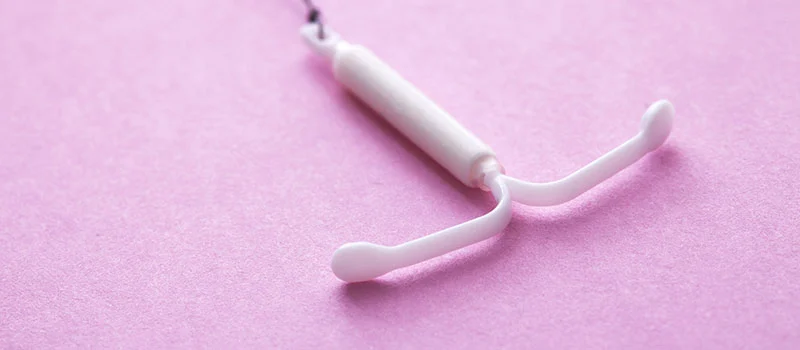
Wait, we have a special
offer for you!
Click the button below to get your discount.
Get my coupon now No thanks, I'd like to pay full price

The surging trend of intrauterine devices (IUDs) as a trustworthy contraceptive option is indisputable. Nevertheless, a substantial number of women continue to hold reservations concerning the possible side effects, specifically focusing on worries related to bloating and finding the answer to does iud make you gain weight. In this blog post, our goal is to address and alleviate these concerns comprehensively. We aim to achieve this by offering a deeper understanding into the intricacies of two frequently used IUDs, Kyleena and Mirena. Through this exploration, we aspire to empower you with the knowledge to make a well-informed decision when it comes to selecting the most suitable contraceptive method for your needs.
Did you know you can buy Mirena from Canada and save upto 80% compared to local pharmacies in USA? Check our prices and availability now.
Before we delve into do IUDs cause weight gain and bloating, it is essential to have a clear understanding of the two primary categories of IUDs:
Non-Hormonal IUDs: These IUDs utilize copper to create an inhospitable environment for sperm, preventing fertilization without introducing any hormones into the body. They work solely by the copper's sperm-repelling properties.
Hormonal IUDs: Mirena and Kyleena fall into this category. Hormonal IUDs release a low, continuous dose of a synthetic hormone called progestin. Progestin serves multiple purposes in preventing pregnancy: it thickens cervical mucus, making it difficult for sperm to reach the egg, and in some cases, it inhibits ovulation, further reducing the chances of pregnancy.
Weight gain is a common concern among women considering IUDs. Let's explore how Kyleena and Mirena may or may not impact your weight:
When it comes to Kyleena, clinical trials and research have not definitively established a direct connection between using Kyleena and experiencing significant weight gain. However, it's important to remember that individual responses to contraceptive methods can vary. Some people may notice changes in their weight while using Kyleena, although these changes may not necessarily be attributed to the IUD itself.
On the other hand, Mirena is a hormonal IUD, and it does have the potential to lead to weight gain for some individuals. This weight gain is often associated with water retention, which is primarily caused by the progestin hormone contained in Mirena. It's worth noting that this bloating or water retention is typically temporary and tends to decrease over time as your body adjusts to the hormonal changes introduced by the IUD.
One notable distinction between Kyleena and Mirena lies in the daily amount of progestin hormone they release. Kyleena emits approximately 9 micrograms, while Mirena delivers around 15 micrograms of progestin. The lower progestin level found in Kyleena may potentially be linked to a reduced likelihood of experiencing weight gain associated with water retention. However, when deciding between these two options, it is crucial to consider other factors such as their contraceptive effectiveness and their ability to regulate menstrual flow, ensuring they align with your specific requirements.
It is important to acknowledge that weight fluctuations can occur during the reproductive years, regardless of whether you use an IUD. Lifestyle factors, stress, hormonal fluctuations, and various individual variables can all contribute to changes in weight. Therefore, if you happen to notice weight gain while using an IUD, it is advisable to initially evaluate your lifestyle and habits. If significant and persistent weight gain occurs, seeking consultation with a healthcare professional is recommended to rule out any underlying medical issues.
So, does an IUD cause bloating? The temporary bloating that some individuals may experience with IUDs like Mirena and Kyleena is primarily attributed to water retention caused by the progestin hormone. It is essential to understand that this bloating typically decreases as your body adjusts to the presence of the IUD.
When contemplating the use of an IUD like Kyleena or Mirena, it is crucial to acknowledge that weight changes are possible but vary from person to person. The question does IUD make you gain weight lacks scientific evidence. To make the most suitable choice for your contraception needs and address concerns about weight gain or bloating, consult your healthcare provider, who can offer personalized guidance and recommendations tailored to your unique circumstances. Remember that your well-being and peace of mind are paramount when it comes to your contraceptive choices.